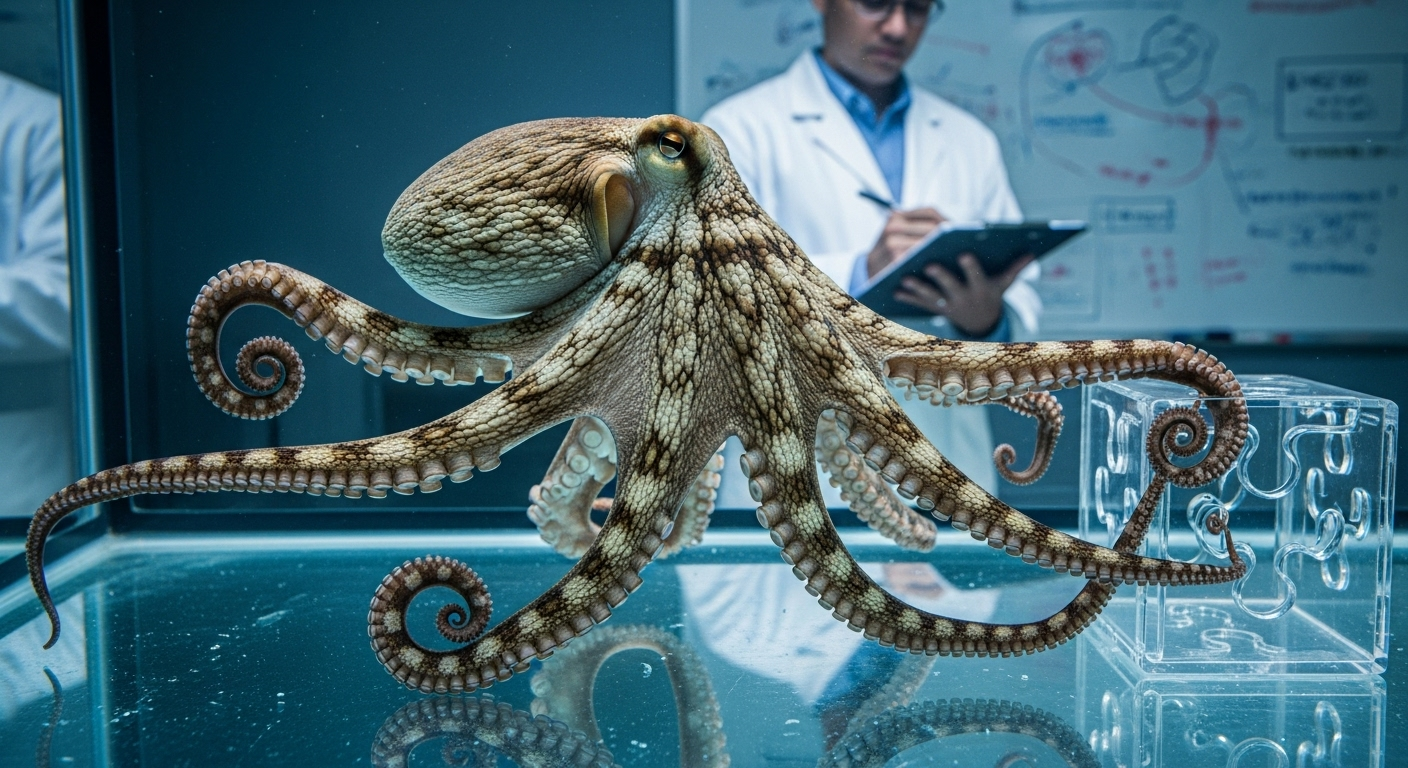Unraveling the Enigma of Octopus Intelligence
Delve into the fascinating world of cephalopod cognition as we explore the remarkable intelligence of octopuses. From problem-solving abilities to adaptive camouflage, these eight-armed wonders continue to astound scientists and animal enthusiasts alike. Join us on a journey beneath the waves to uncover the secrets of these incredible marine masterminds.

The octopus brain contains approximately 500 million neurons, comparable to the number found in a dog’s brain. However, what sets octopuses apart is the distribution of these neurons, with two-thirds located in their arms. This decentralized nervous system allows for incredible dexterity and problem-solving capabilities, enabling octopuses to manipulate objects with precision and adapt quickly to new situations.
Masters of Disguise
One of the most impressive displays of octopus intelligence is their ability to camouflage themselves with astonishing speed and accuracy. Octopuses can change their skin color, pattern, and texture in a fraction of a second, allowing them to blend seamlessly into their surroundings or mimic other marine creatures. This sophisticated form of mimicry requires not only complex physiological adaptations but also a high degree of sensory processing and decision-making.
Recent studies have shown that octopuses can even match the texture and movement of surrounding objects, creating three-dimensional camouflage that goes beyond simple color matching. This level of adaptability demonstrates a remarkable awareness of their environment and the ability to process and respond to visual information in real-time.
Problem-Solving Prodigies
Octopuses have repeatedly demonstrated their problem-solving abilities in laboratory settings, often leaving researchers amazed at their ingenuity. In one famous experiment, an octopus was presented with a jar containing a tasty crab. The octopus quickly learned to unscrew the lid to access the food, showcasing its ability to manipulate tools and understand cause-and-effect relationships.
Even more impressive is the octopus’s ability to solve puzzles that require multiple steps or the use of unconventional tools. In another study, octopuses were observed using coconut shells as portable shelters, carrying them across the ocean floor and reassembling them when needed. This behavior, which involves planning and foresight, is considered a form of tool use rarely seen in invertebrates.
Memory and Learning
Contrary to the popular belief that short-term memory is a prerequisite for intelligence, octopuses have shown remarkable learning and memory capabilities despite their relatively short lifespan of 1-2 years. They can quickly learn to navigate mazes, remember the solutions to puzzles, and even recognize individual human faces.
One study found that octopuses could retain memories of how to open a box for at least five months, demonstrating long-term memory comparable to that of some vertebrates. This ability to learn and retain information is crucial for their survival in the complex and ever-changing marine environment.
Social Intelligence in a Solitary Species
While octopuses are generally considered solitary creatures, recent observations have revealed intriguing social behaviors that challenge this assumption. In some species, researchers have observed complex mating rituals, cooperative hunting, and even what appears to be play behavior between individuals.
The discovery of an octopus city dubbed Octlantis off the coast of Australia has provided new insights into octopus social structures. Here, multiple octopuses were observed living in close proximity, communicating through color changes and body postures, and even engaging in displays of dominance and submission.
Implications for Animal Welfare and Conservation
As our understanding of octopus intelligence grows, so does the need to reassess our approach to their welfare and conservation. The European Union has recently recognized cephalopods as sentient beings, affording them legal protections in scientific research. This decision reflects the growing consensus that these animals possess cognitive abilities worthy of ethical consideration.
The implications of octopus intelligence extend beyond animal welfare concerns. Their problem-solving abilities and adaptability make them valuable subjects for studying alternative forms of intelligence and could potentially inspire new approaches in fields such as robotics and artificial intelligence.
The Future of Cephalopod Research
As technology advances, new methods for studying octopus cognition are emerging. Non-invasive imaging techniques and underwater observatories are providing unprecedented insights into octopus behavior in their natural habitats. These developments promise to unlock even more secrets about the inner workings of the octopus mind.
The study of octopus intelligence challenges our understanding of cognition and raises profound questions about the nature of intelligence itself. As we continue to unravel the enigma of these eight-armed wonders, we may find that the octopus has much to teach us about the diverse ways in which intelligence can evolve and manifest in the natural world.






